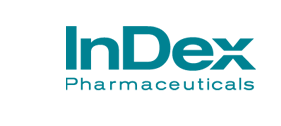News
Company News: InDex Pharmaceuticals Expands Management Team

– InDex Pharmaceuticals Names Pernilla Sandwall Head of Clinical Operations and Thomas Knittel Chief Medical Officer –
Stockholm, April 11, 2012 – InDex Pharmaceuticals today announced two additions to its management team: Pernilla Sandwall has been appointed as Head of Clinical Operations and Thomas Knittel as Chief Medical Officer. Pernilla Sandwall will lead the company’s clinical development team, with the main focus being the ongoing phase III clinical trial of Kappaproct® in patients with treatment-refractory ulcerative colitis. Thomas Knittel will serve as the company’s lead medical expert and provide leadership in medical and marketing affairs.
Pernilla Sandwall has more than 20 years of experience in clinical research operations. She joins InDex Pharmaceuticals from Merck & Co. Inc. (MSD), where she has worked both in the Swedish subsidiary and the U.S. headquarters, as well as regionally in Europe. She has experience in the field as CRA and project manager, as well as strategically as Clinical Research Manager. Her focus over the last years has been global patient recruitment, site selection strategies and execution. She also has experience in change management and Lean Six Sigma methodology. She has a Master of Science in Pharmacy from Uppsala University.
Thomas Knittel has over 15 years of clinical experience within gastroenterology as well as 13 years of experience in medical affairs and marketing management. Before joining InDex Pharmaceuticals, he held positions as Business Unit Director and Director of Sales and Marketing at Novo Nordisk for central Europe, as General Manager Pharmaceuticals at Harlan Laboratories, and as Vice President Corporate and Medical Affairs at Develogen AG. He has a Medical degree from the University of Mainz with a specialist training in internal medicine and gastroenterology. He is an Associate Professor in Internal Medicine and Gastroenterology at the University Clinic Goettingen. In addition, he has an MBA from Kellogg School of Management/WHU.
